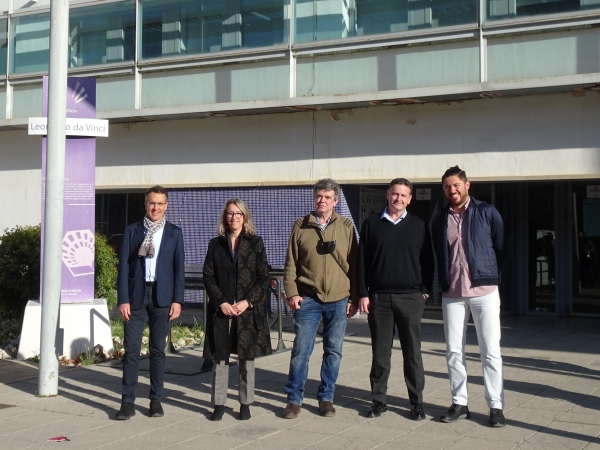Improving the sustainable construction skills of those who study Engineering. This is the objective pursued by the Erasmus+ KA 226 ADD-ON_SKILLS project, in which the University of Cordoba is participating together with four other European institutions.
This project arose from the need to offer Higher Education students a complement to regulated university training, allowing them to acquire skills to facilitate their access to the labor market. The aim is to provide students towards the end of their university studies with the keys to respond to the demands of the Construction sector as regards sustainable building. This sector is responsible for a significant share of energy, electricity and water consumption, so the development of methods and the use of more efficient technologies in construction helps to reduce its environmental impact, and represents a firm commitment to the Circular Economy.
This specialized training provided by the project takes the form of a 60-hour course to be taught next summer, for four weeks; two of them virtual, and two in person, with a stay at the Bialystok University of Technology (Poland), which is coordinating the project. Four students at the Higher Polytechnic School of Belmez, enrolled in Civil Engineering and Energy and Mineral Resources degree programs there, will be able to take this programmes.
Each of the European universities participating in the ADD-ON_SKILLS project, the Faculty of Technology and Design in Vilnius (Lithuania), the Rezekne Academy of Technology (Latvia), the University of Florence (Italy), the Technological University of Bialystok (Poland) and the University of Cordoba are responsible for preparing the contents of the different subjects that will make up the course.
The UCO, through professors Antonio Rodero, Manuel Ruiz de Adana, David Bullejos, Fátima Moreno and Pedro Torralbo, will prepare and teach contents corresponding to four subjects related to energy efficiency, climate control, electrical and hydraulic installations, the electricity market and renewable energies. The coordinator of this team of researchers, Antonio Rodero, explains that he is already receiving, for his supervision, the material from the professors of the different subjects, as well as part of the documentation, which will be published in a book featuring very technical and specific content. This book, part of the UCO's work within the framework of this project, will be aimed at engineers and researchers and will deal with different timely topics related to the subjects of the course.
In addition, the Cordoba team has been charged with developing a curriculum so that the course, to be taught in June and July, can be offered later, in other editions, outside the framework of the Erasmus+ programme.
The project bolsters the educations of future engineers while promoting collaborative work with international and multidisciplinary teams, with which they will have to complete a final project on energy consumption. Specifically, the students participating in the course will implement a project on energy consumption in energy-efficient homes that they themselves have designed in different geographical locations.
For the Córdoba team, being part of this project means strengthening the collaboration with other international researchers that began with the Erasmus+ VIPSAKILLS project. This is a "very enriching" experience for the students who participate, both for their training and for their professional prospects going forward.
Â
This project has been funded with support from the European Commission. This publication reflects the views only of the author, and the Commission cannot be held responsible for any use which may be made of the information contained therein.


